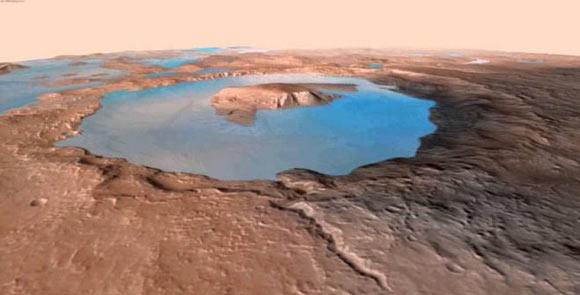In a new study published in the Planetary Science Journal, a team of U.S. scientists combined experimentally verified data on brine evaporation rates along with a global circulation model to develop a new extensive framework of brine stability on the surface and subsurface of Mars. They found that the equatorial regions of Mars typically have temperatures too high for stable brines, while high latitudes are susceptible to permanent freezing.
Source: Sci News
Brines are mixtures of water and salts that are more resistant to boiling, freezing and evaporation than pure water.
Finding them has implications for where planetary scientists will look for past or present life on Mars and where humans who eventually travel to the planet could look for water.
“We took all major phase changes of liquids into account — freezing, boiling and evaporation — instead of just a single phase, as has commonly been the approach in the past,” said lead author Dr. Vincent Chevrier, a researcher in the Arkansas Center for Space and Planetary Sciences at the University of Arkansas.
“It is looking at all the properties at the same time, instead of one at a time.”
“Then we build maps taking into account all those processes simultaneously.”
“Doing so indicates that previous studies may have overestimated how long brines remain on the surface in the cold, thin and arid Martian atmosphere,” he said.
“The most important conclusion is that if you do not take all these processes together, you always overestimate the stability of brines. That is the reality of the situation.”
Favorable conditions for stable brines on the Martian surface are most likely to be present in mid- to high-northern latitudes, and in large impact craters in the southern hemisphere.
In the shallow subsurface, brines might be present near the equator.
In the best-case scenario, they could be present for up to 12 hours per day.
“Nowhere is any brine stable for an entire day on Mars,” Dr. Chevrier said.
Source: Sci News

































Leave a Comment
You must be logged in to post a comment.